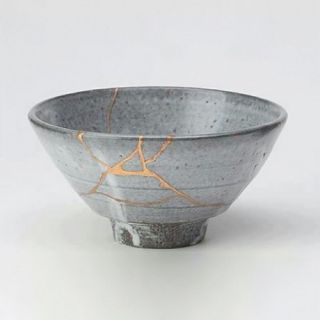In second grade, my teacher was the ultimate authority, the one who decided what was right and what was wrong, the one that we complained to in case somebody took our big red-coloured Kit-Kat eraser. I was in awe of her, though I found her a bit strict.
Outside our school there were a few laaris (carts), where a whole lot of low-quality eatables were sold. It was stuff like tamarind, etc. One such taste-bud-tantalizer was some sort of tamarind powder. I never bought these things because my parents said they were bad for health. Our teachers also discouraged it.
Once, Miss B as I’ll call her, caught a boy in my class eating the said powder. She scolded him in front of the entire class, but that wasn’t all. She proceeded to read the ingredients on the packet too. One of them was citrus acid.
Now, mind you, we were in second grade, and didn’t really know the difference between edible acids and cleaning stuff. For us, any acid was ACID, THAT THING WHICH WILL BURN YOU, as was taught to us. Miss B, taking advantage of the fact, lectured us on the terrors of eating the thing.
I went home horrified at the foolishness of the boy. Over lunch, I told my parents all about it. My parents very gently informed me how fruits like oranges actually contain citrus acid and that it is completely harmless and edible.
My first reaction was disbelief. How could a teacher lie to us? How could she take advantage of our ignorance?
But soon, I realised why she did so. It was easier for her to say that the powder contained acid rather than explain the details of why exactly it was bad for health. Considering the fact that I was seven and idealistic, I think I forgave her quite easily.
How easy it is, to not explain and merely order. Explaining would take more time, more efforts and probably lead to further questions. Scolding, ordering and even scorning, would take only a few minutes and have a more immediate impact. And of course, a deeper impact, though that part is neglected: Children stop asking “Why?”

Don’t ask silly questions!
When I was growing up, keeping quiet was a virtue. All students of my generation have heard this from their teachers at least once: Finger on your lips! Don’t talk! Don’t disturb the class! Don’t ask silly questions! I’ve even heard of some teachers completely discouraging any questions when they are in the middle of their teaching, lest they lose their track!
I was a good student. I was, in fact, a model pupil. I even got an award for it: Best Conduct and Discipline. What does it mean really? Good conduct and being disciplined? In my day, it meant being silent in class, accepting the teacher’s authority, not talking back. It meant that I would never question the teacher. I was fed these “virtues” as food everyday. Distinguishing between proper questions and silly questions came easily to me; I knew instinctively which questions shouldn’t be asked. The teachers adored me!
But it also meant that a lot of those silly questions were never asked even though I was curious. I stopped daring to be creative with answers because I was afraid that the teachers would expect me to follow the right and taught methods. For each question asked, I had two answers in my mind; one that I wanted to give, and one which I knew the teacher wanted to listen. I always gave the latter one.
Times have changed now. Questions are encouraged. Creativity is rewarded. The definition of a good student has been changing. Now, we are told that one who asks the most questions learns the most. One who accepts the things as they are told is obedient, but not bright. “Out of the Box thinking” (a much abused expression) is encouraged. For some, the transition has been smooth. For others, it comes with effort.
I was systematically taught to be obedient. And now, it has taken a good amount of conscious effort to revamp the way my mind works, to stop the instinct to give a “desirable” answer and try giving one which may sound silly.
It takes courage to wonder, to be in any way, out of the ordinary. Thank goodness, those questions and those answers were only silenced and not completely removed. Thank goodness, that “creative” wondering was encouraged at home. I realise that school played a very major role in shaping the way I think, but I’m glad, that the very basis of my thought process was formed at home. Beneath those layers of obedience, the inquisitiveness remained, though a little rusty.
Children are curious by nature. Organised learning often kills that curiosity, one question at a time. Every time a teacher gives an order and refuses to answer “Why?”, the child learns to never question authority, to be a doormat.
Is it that difficult to tell a child Why she should/should not do something? How can one expect a child to choose between obedience and inquisitiveness?
How was your experience in school? Were all questions encouraged?















